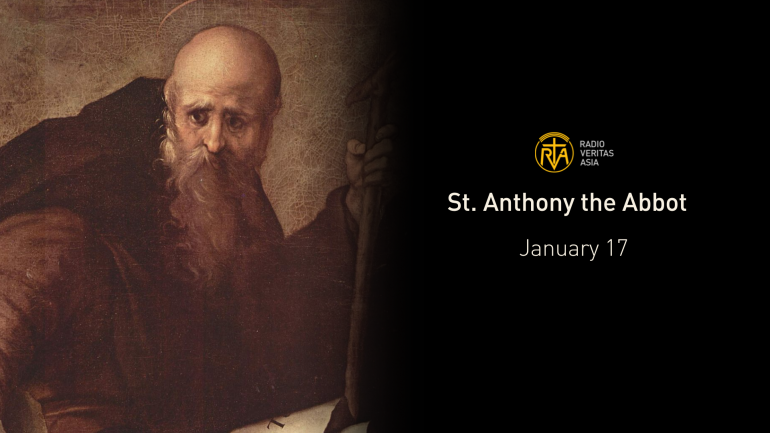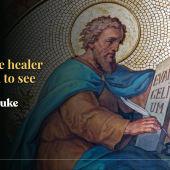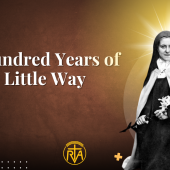St. Anthony the Abbot

St. Anthony the Abbot, also known as Anthony the Great, was from Egypt and a prominent leader among the Desert Fathers. His feast day is observed every January 17 among the Eastern Orthodox and Catholic churches.
He was born in Koma, Lower Egypt, to affluent parents who owned huge tracts of land. At around age 20, Anthony’s parents died, so he was left to look after a single sister.
He dared obey the gospel of Matthew, particularly chapter 19, verse 21, which said, "If you want to be perfect, go, sell what you have, and give to the poor, and you will have treasures in heaven."
So he gave land to his neighbors and donated money to the poor from the sale of their remaining property. At about 35 years of age, Anthony decided to live an ascetic life and embraced solitude after entrusting his sister to a group of Christian virgins.
He spent his initial years as a follower of another local hermit. For long periods, he lived on a very strict diet that consisted of bread, salt and water, mostly eating once a day and fasting for two to four days in the desert.
People believed that he accompanied animals, and his respect for them earned him the title of their patron saint. He is also the patron saint of bacon and butchers after winning over the devil and taking the image of a pig to tempt him.
He is often seen next to a pig with a bell around its neck, which is linked to the ancient hospital order of the "Antonines,” which raised pigs. The Antonines used the fat of their pigs to anoint the sick affected by ergotism.
This disease was called "the fire of Sant 'Antonio". On his feast day, the priest blesses the stalls, along with other domestic animals brought for the blessing.
In the narratives of Athanasius of Alexandria in The "Life of Anthony," he said the saint overcame the devil in the forms of boredom, laziness and lust with the power of prayer.
Athanasius, in Greek writing, portrayed Anthony as an illiterate and holy man who had an absolute connection to the divine. Anthony spoke Coptic as his native language, and his wisdom spread through Greek translation.
He helped to spread the idea of monasticism, particularly in Western Europe, through Latin translations after being known as among the first ascetics to have gone into isolation.
He was instrumental in the formation of families of monks who consecrated themselves to God’s service.
He is distinguished from other Anthonys who are saints and is known as Anthony of Egypt, Anthony the Abbot, Anthony of the Desert, Anthony the Anchorite, Anthony the Hermit, and Anthony of Thebes.
When Anthony felt the nearness of his death, he instructed his followers to give his staff to Macarius of Egypt and to give one sheepskin cloak to Athanasius of Alexandria and the other sheepskin cloak to Serapion of Thmuis, his disciple.
Anthony's instructions dictated that he be interred in a grave adjacent to his cell. According to his instructions, Anthony chose to live on the mountaintop and was clandestinely buried there. In 361, explorers discovered his remains and transferred them.
Several miraculous healings had been credited to Anthony for his assistance, like ergotism, which became popular as "St. Anthony's Fire".
He also recovered two local noblemen from the disease. So, they established the Hospital Brothers of St. Anthony in honor of him, who specialized in nursing the victims of skin disease.
Anthony did not put up a monastery, but a community grew around him based on his example of living an ascetic and isolated life.
His biographer, Athanasius, wrote that for monks, the life of Anthony is a sufficient example of asceticism.
Radio Veritas Asia (RVA), a media platform of the Catholic Church, aims to share Christ. RVA started in 1969 as a continental Catholic radio station to serve Asian countries in their respective local language, thus earning the tag “the Voice of Asian Christianity.” Responding to the emerging context, RVA embraced media platforms to connect with the global Asian audience via its 21 language websites and various social media platforms.













